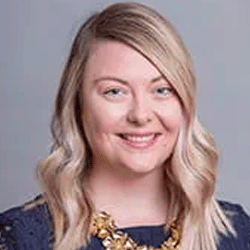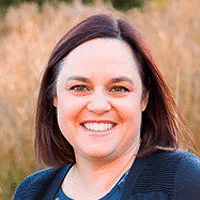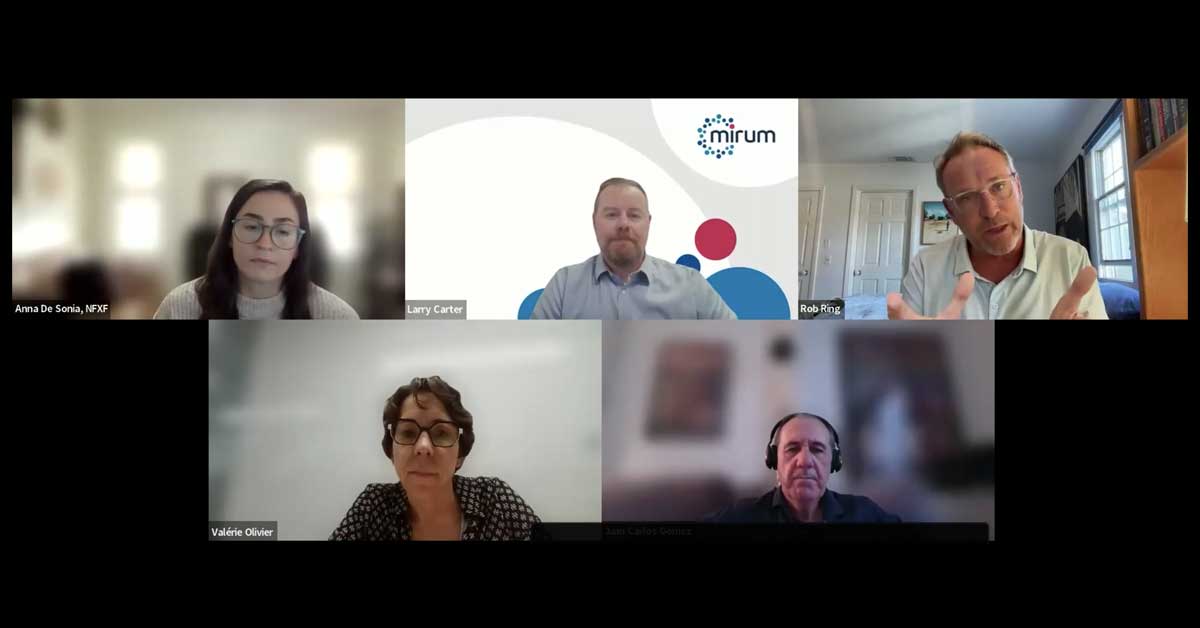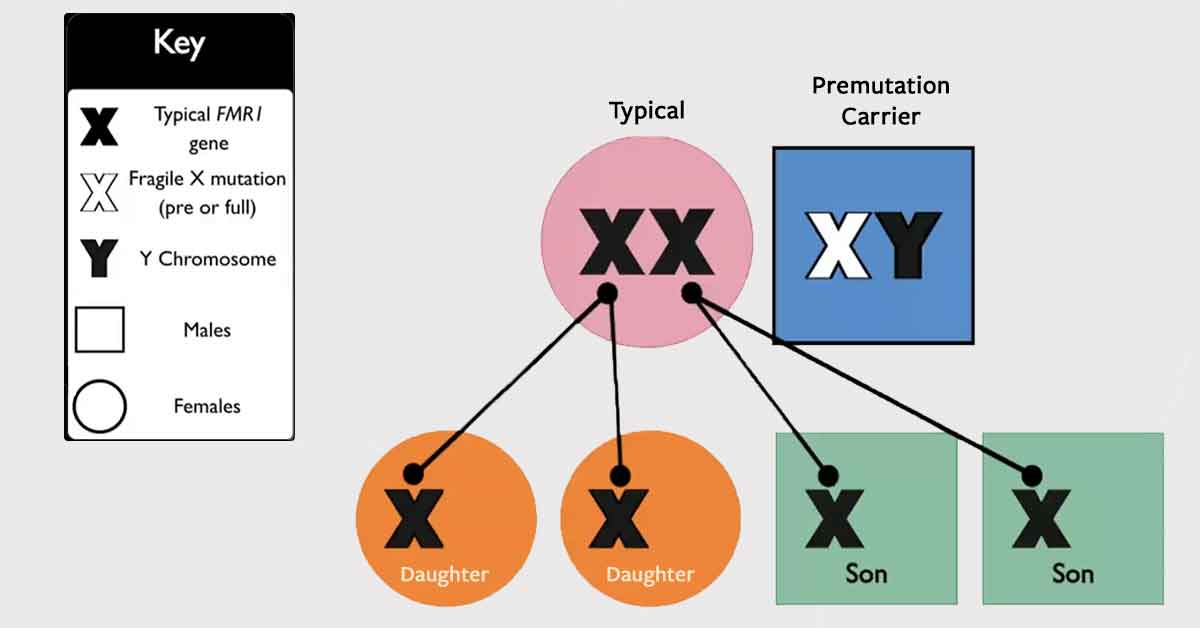A New Initiative
Overall, the sense of belonging enriches lives and helps individuals thrive both personally and collectively. But the question remains:
How do we make sure that everyone in our special Fragile X community feels like they belong?
Together with the Fly With Me fund, we awarded three Fragile X clinics with funding for their projects dedicated to reaching underrepresented and underserved communities. Additionally, we — the NFXF — developed a survey project on belongingness. We’re proud to say we’re already having a major impact!

Leveraging Community Engagement to Advance Access to Diagnosis and Treatment in FXS
Clinic: Cincinnati Children’s Hospital Medical Center
Principal Investigator: Debra Reisinger, PhD
Project Description: Fragile X syndrome does not discriminate based on race, ethnicity, geographic region, or socioeconomic status. However, our current understanding of FXS is largely based on research with non-Hispanic, White participants, consistent with the patient demographics seen in FXS clinics across the United States.
There are several significant barriers that limit individuals from racially and ethnically diverse backgrounds from regularly participating in clinic visits and research. This is particularly problematic since researchers do not know how pharmacological and behavioral interventions are meeting the needs of culturally and linguistically diverse FXS populations, especially given that interventions are often assumed to be effective for all, even though they have been developed and validated primarily with and for non-Hispanic, White individuals.
Underrepresenting individuals from historically marginalized racial and ethnic groups contributes to systemic inequities in FXS diagnoses, treatment access, and outcomes. To address these barriers, our project focuses on increasing knowledge and awareness of FXS through community engagement and outreach opportunities at community health clinics and events in local diverse communities
Our central goal is to provide targeted education on early identification of FXS and obtain genetic testing with a focus on health clinics in underserved areas across Cincinnati and the Tri-State area, including free and charitable clinics, federally qualified health centers (FQHCs), and other community health centers with high Medicaid utilization rates. Further, we aim to expand to the rural free and charitable healthcare clinics surrounding Cincinnati and at least one free or charitable health clinic in Indiana and Kentucky. Within this goal, this project will assist in developing training and disseminating materials that providers can use in their clinics to assist in understanding the diagnosis and treatment of FXS and connecting families with the Cincinnati Fragile X Research and Treatment Center.
University of Utah and Primary Children’s Hospital Fragile X Clinic Belonging Grant
Clinic: University of Utah and Primary Children’s Hospital
Principal Investigator: Victoria Wilkins, MD, MPH
Project Description: It is important to establish a sense of belonging and social connectedness for rural families living with FXS. This sense of connection can come from both affiliation with a larger FX clinical hub and local support.
We propose to build Fragile X community capacity by connecting with health care providers and families and building remote outreach and networking capacity and opportunities for families. We will survey families on their sense of connectedness using the National Survey of Health and Disability (NSHD) and the UCLA Loneliness Scale. We will work to better understand barriers and facilitators to accessing specialized FX care for families in rural settings and provide support to local care providers for their patients with FXS.
Further, our region contains a large amount of Native American tribal land. Currently, 2.7% of the population of the state of Utah is Native American. Native Americans living in Utah report unmet needs for healthcare, problems with transportation, and culturally insensitive care. We have contacted Indian Health Services (IHS) physicians to understand their needs regarding FXS better.
Currently, they have not identified any individuals with FXS in their clinical portfolio. Our FXS clinic has identified two patients with Native American heritage in our own clinic population. Because there are likely more unidentified Native American patients with FXS in our catchment area, we will focus our Native American outreach to help healthcare providers recognize the signs and symptoms of FXS and to obtain the correct testing for FXS. We will do virtual outreach with the regional Native American healthcare network to raise awareness of the condition and how to test for it. They will also be able to refer their patients to the clinic.
“Belonging” — Empowering Families Affected by Fragile X Syndrome
Clinic: Children’s National Hospital
Principal Investigator: Naterra Walker, NP
Project Description: The Belonging Project aims to create a supportive and inclusive community for families affected by Fragile X syndrome in the Washington, DC, region.
This project will focus on providing educational workshops, parenting classes, multilingual resources, community engagement, and support groups in the DC Metro area to enhance the quality of life for individuals with FXS and their families. The project’s success will be measured by increased knowledge, improved caregiving skills, clinic growth, and strengthened social connections within the targeted communities.
Our Belonging Project is designed to positively impact the lives of families affected by FXS and living in the DC metro area. The project aims to empower families to navigate the challenges associated with FXS and enhance their overall well-being by fostering a sense of belonging, providing education, and building a supportive community.
Belonging in Fragile X: A Survey Addressing Diversity, Equity, and Inclusion in the Fragile X Community
Location: National Fragile X Foundation
Principal Investigator: Hilary Rosselot
Project Description: Belongingness is the human emotional need to be accepted by group members. A sense of belonging is important to feeling like part of a community. Whether it is family, friends, co-workers, a religion, or something else, most people tend to have an “inherent” desire to belong and be an important part of something greater than themselves.
Belonging is when each member of the community is treated and feels like a full member. It is the foundation of diversity, equity, and inclusion.
Ensuring everyone in the Fragile X community feels like they belong is important work, and we believe that accurate representation is an issue that we can solve together across the Fragile X community. We — the NFXF — are committed to addressing the gaps in belonging in the Fragile X community, and we are interested in understanding your experiences so we can take actionable steps toward ensuring that all members of our community feel like they belong.
We invite you to help us tackle this complex topic by providing us with your invaluable input in a brief survey. Your thoughts and experiences will help us inform how we can break down existing barriers, so that every member of our community feels like they truly belong.
This survey will ask you questions about:
- Who you are
- Diversity in Fragile X community and research
- Your perspectives on “belonging”
- How we (NFXF) can do better

We thank the Fly With Me Fund for its generous partnership in offering these grants.
Questions?
If you have questions about anything research-related, we’d love to hear from you! You can reach out to Anna De Sonia directly, or submit your question or comment through our contact form below.








